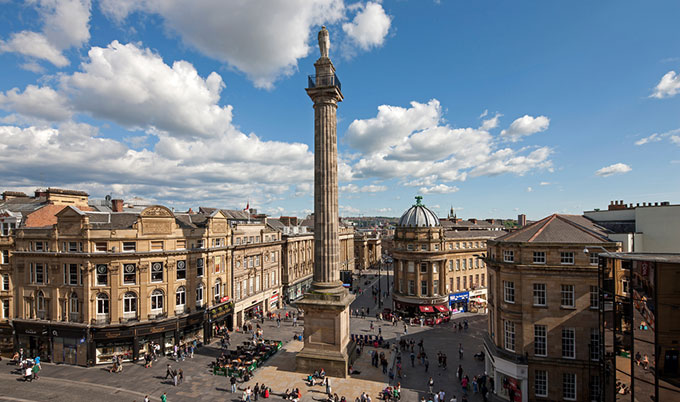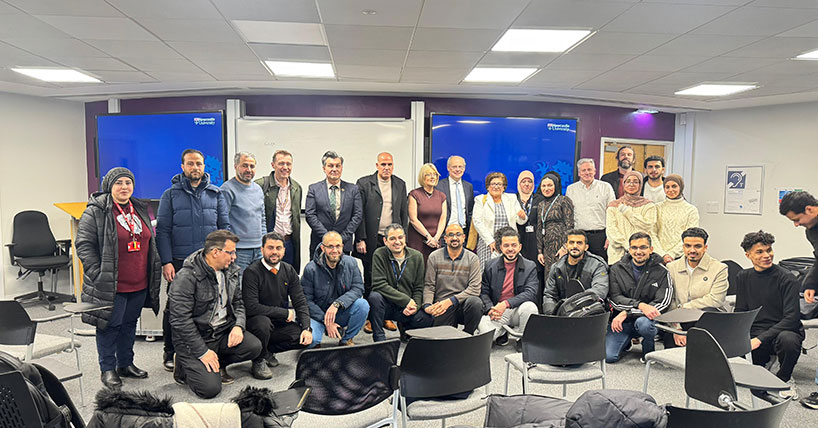Philanthropy festival
Research highlights a millennium of charitable giving
Published on: 7 November 2018
Acts of generosity dating back more than 900 years still actively benefit North East communities today, research has highlighted.
The long history of North East philanthropy
Experts at Newcastle University’s Centre for Research on Entrepreneurship, Wealth and Philanthropy have revealed the long history of philanthropy in the North East ahead of a major festival to celebrate what charitable giving has been achieved in the region.
They point to examples such as Sherburn House in Durham, which was founded by Bishop of Durham Hugh Pudsey around 1181 as a leper hospital. Today it provides residential care and sheltered housing to the elderly. Similarly, the St Mary Magdalene and Holy Jesus alms house in Newcastle and the Hospital of God at Greatham, near Hartlepool, were established in the Middle Ages and continue to care for vulnerable people.
As well as hospitals, there is a long tradition of philanthropic giving that has supported education, the arts and a range of other causes to promote the economic, social and cultural wellbeing of the North East.
Other notable sites founded by philanthropy include Grey’s Monument, pictured, and Jesmond Dene in Newcastle, Bowes Museum in Barnard Castle, Albert Park in Middlesbrough, and Shipley Art Gallery in Gateshead.
The research also reveals how endowments have enabled many long-established charities to survive in the face of modern economic pressures and social changes. A regular income in the present as a result of gifts made in the past, has played a large role in the longevity of many causes the research team say.
Professor Charles Harvey, Director of the Centre for Research on Entrepreneurship, Wealth and Philanthropy, said: “Through the ages, philanthropy – the voluntary giving of money or time – has made a tangible difference to our local communities. People will be amazed to learn how many landmarks, buildings and parks were donated by acts of giving. Without philanthropists, our region would be so different and we wouldn’t have achieved some of the tremendous things we have.”
Over three years, the study team carried out extensive research into the motivations behind philanthropy and the wide range of causes that modern philanthropists support. They used this to create profiles of more than 250 philanthropists, beneficiaries, trusts and foundations which are available on the GeNErosity Festival website as an interactive map and accompanying guide “Philanthropy: The North East Story”.
To coincide with the festival, the research team have also written "Understanding Philanthropy" - a guide to philanthropy, which provides an overview of the philanthropic landscape in Britain and discusses the motivations behind charitable giving and the wide range of causes that philanthropists support.

Celebrating public giving
The research was specially commissioned for the GeNErosity Festival, which launches today and will run until 27 November.
Jointly organised by Newcastle University and the Community Foundation Tyne & Wear and Northumberland, the festival aims to celebrate the North East’s philanthropic past and influence the future of public giving.
Throughout the festival, 50 events will highlight what philanthropy has achieved in the North East and will discuss how communities can come together through philanthropic acts, large and small, for the greater good of the region.
Professor Harvey added: “The meaning and worth of philanthropy lies in the honest struggle to mitigate the consequences of economic and social inequalities.
"Anyone can be a philanthropist - for example, tens of thousands of front-line charities which exist to improve the lives of millions of people are sustained largely by the generosity of private individuals. They are not necessarily the ‘mega donors’ that we may hear about in the media, rather they are the ordinary people who give up some of their time to volunteer or who donate what they can to a crowdfunding campaign and are just as instrumental to North East England as their forebears.”
Among the events taking place during the GeNErosity Festival will be the ‘Transformational Philanthropy in Action’ debate on 14 November. Taking place at Newcastle University’s Curtis Auditorium, the free event will bring together four of Britain's most dynamic and committed practitioners of transformational philanthropy to debate their future vision for philanthropy, the lessons they have learned, and how to improve the impact and effectiveness of private contributions for the public good. The four panellists are:
- Bill Holroyd CBE, founder and chair of OnSide Youth Zones;
- Sir Paul Marshall, chair of ARK Schools;
- Fran Perrin, founder and director of the Indigo Trust and chair of 360Giving;
- Sir Peter Vardy, chair of The Vardy Foundation and Safe Families for Children.
The story of how philanthropy has helped promote Newcastle University to a world-leading institution will be explored during a public lecture on 20 November. ‘Philanthropy and the making of Newcastle University’ will be delivered by Professor Helen Berry, incoming Head of the School of History, Classics and Archaeology, and will shed light on some of individuals whose energy, generosity and foresight have contributed to the University’s success.
These include the housebuilder, Sir William Leech, who made large gifts to the University in support of medical research during the 1980s and novelist Dame Catherine Cookson, whose generosity, through the Catherine Cookson Foundation, continues to support a wide variety of academic initiatives across the University. The £3.8m refurbishment of the University’s Hatton Gallery which re-opened in 2017, for example, was partly funded by the Catherine Cookson Foundation.
More recently, world-renowned architect Sir Terry Farrell donated £1m to the University for the creation of the ‘Farrell Centre’ which will house a major new architectural exhibition centre, an urban room where anyone can come to learn and discuss the city of Newcastle - its past and proposals for its future - and a start-up space for recent graduates.
Launch highlights
As well as revealing the research, today’s launch event also included the premiere of a short film especially commissioned for the event.
Entitled ‘What does philanthropy mean to us?’ the 15-minute piece features major philanthropists doing great thing for charitable causes across the region and highlights how philanthropy can be deeply personal to the few who give their money and time to good causes, while the impact of these donations positively effects the many.
As well as the film screening, guests at the launch event were also treated to a flash mob-style performance by the award-winning November Club, with actors and young people presenting a dramatic representation of what philanthropy means to them.
The launch, which took place at Newcastle’s Discovery Museum, also involved community groups and charitable causes from across the region who know first-hand what philanthropy means and the positive impact it can have on beneficiaries.
For more information on all the events taking place throughout the GeNErosity Festival, visit www.generosityfestival.co.uk or search online for #poweredbyphilanthropy.



